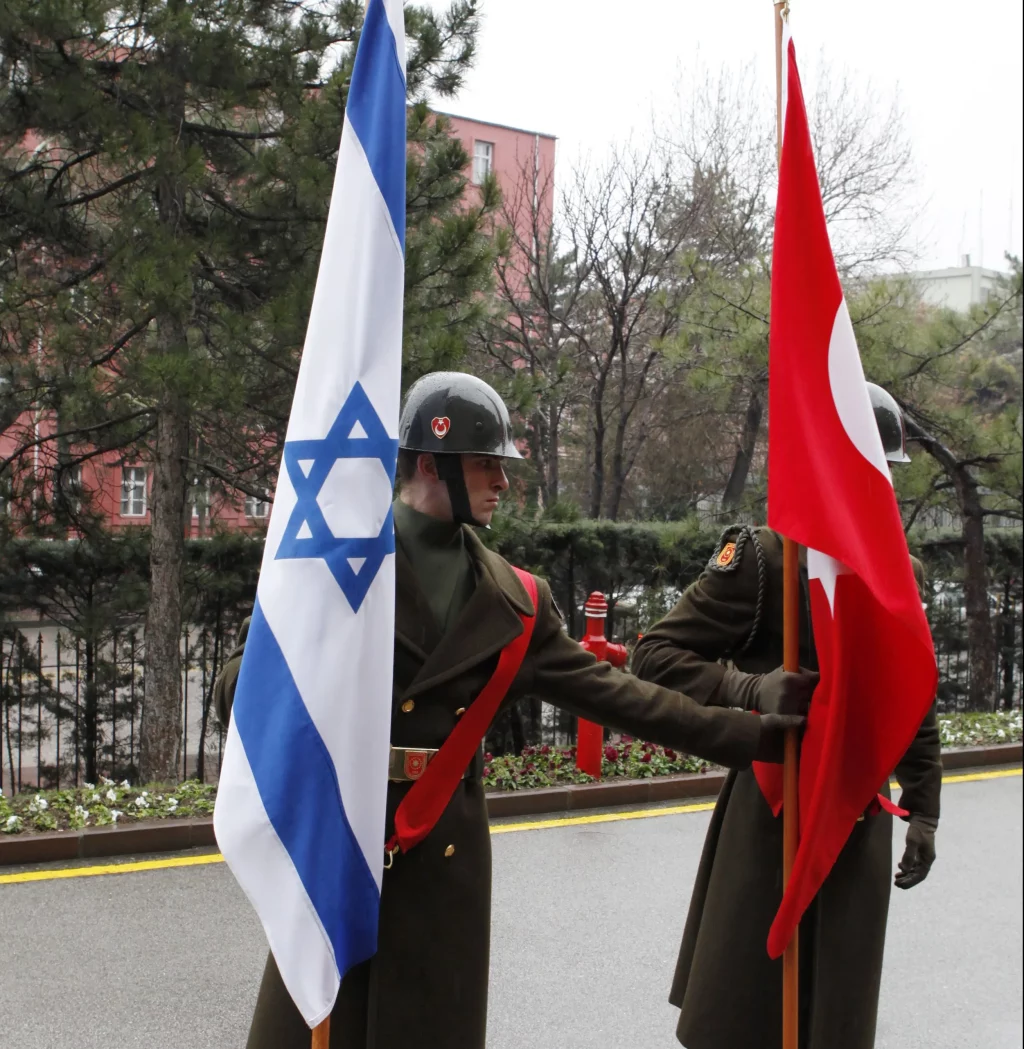Israel and Turkey: The geopolitical struggle for Syria

Israel and Turkey are engaged in a massive geopolitical struggle for influence in Syria, which will ultimately determine the success or failure of the new government.
After a Turkish Ministry of Defence source confirmed plans to establish a military base in Syria to Asharq Al-Awsat including the possibility of a training base to enhance the capabilities of the Syrian military, concerns are growing in Tel Aviv over their operational freedom in Syria.
“Turkey’s goal is to limit Israeli activity in Syria. We have no interest in confrontation, but we won’t give up our positions either,” a senior Israeli official was quoted in the Haaretz newspaper as saying.
The official also reportedly said, “[Al-Sharaa] is a classic Islamist and clearly our enemy – without a doubt,” in a sign that Israel’s frostiness towards the new Syrian government will not be thawing anytime soon.
In early March, Israeli Defense Minister Israel Katz said Israel will defend itself against any threat from Syria, while vowing the military will continue working to keep southern Syria demilitarized.
The Israeli military are currently occupying parts of southern Syria following the ousting of Syrian dictator Bashar al-Assad in December 2024 and the coming to power of Al-Sharaa and HTS, a former offshoot of Al Qaeda. Quoting fears over the rights and security of minority groups with a new Islamist government in power, Israel invaded and occupied parts of the country in the name of the Druze community.
Since, Israeli Prime Minister Netanyahu has posited three conditions. Firstly, that the Syrian government cannot deploy forces south of Damascus; secondly, that Israel is the protector of minority communities in Syria; thirdly, that Israel is “indefinitely” committed to occupying Syrian land.
Additionally, within days of Assad’s fall, Israel conducted Operation “Bashan Arrow” in which 350 Israeli Air Force Combat Aircraft struck over 300 strategic military targets across Syria, including the capital of Damascus. In wiping out over 70 percent of Syria’s military assets, Israel has left the country vulnerable to fragmentation and foreign influence with powerful militias across the country capable of challenging the new government.
Netanyahu’s overarching goal, as posited by Maghrebi, is the deliberate systematic fragmentation of Syria through adopting a divide-and-rule tactic, exercising military might to occupy territory illegally under international law – a move already seen in the Occupied Palestinian Territories and Lebanon.
Other senior Israeli officials have also welcomed the violence and chaos witnessed in Syria, saying the “power struggle” benefits Israel, as the new government tries to find its feet.
So whilst Israel continues its policy of destabilization in neighboring Syria, Turkey to its northwest attempts to consolidate the new government by providing military, economic and political support, according to The New Arab.
Erdogan has been a devout critic of Israel dating back to his days as Prime Minister where he stormed off stage following an intense exchange with Israel’s then-President Shimon Peres over Operation Cast Lead. After the latest war waged in the Gaza Strip, Turkey has consistently made their opposition to Israel clear.
“The only step that will stop Israeli arrogance, Israeli banditry, and Israeli state terrorism is the alliance of Islamic countries,” Erdogan declared in September 2024, a mission he seeks to achieve with neighboring Syria.
Ankara wants to see Syria’s new leadership consolidate their power and govern Syria as a united, unitary state for a multitude of reasons.
Firstly, avoiding state collapse avoids dangerous power vacuums from emerging which would generate widespread violence and instability just across the border from Turkey. Additionally, within Syria are many foreign-backed militia groups which could spill violence into Turkey – particularly groups aligned with the PKK, a registered terrorist organization in Turkey, the US, and UK.
However, on March 10th, Damascus announced a deal with the SDF (a US-backed, PKK-aligned militia) to integrate all its military and civilian institutions into the Syrian state, ceasing hostilities and transferring authority over to the central government.
However, threats from other groups like Islamic State would drastically increase following a state collapse in Syria.
There is also a lot of political pressure within Turkey on Erdogan to repatriate the millions of Syrian refugees who flooded into the country to escape the brutality of the 13-year civil war.
Lastly, it’s within Turkey’s own economic interests to invest in the construction and manufacturing processes involved in the rebuilding of the state.
Many analysts dismiss the notion of a state-to-state war between Turkey and Israel, particularly seeing as both are very close friends to the US administration. Israel is largely backed by most Western governments and Turkey is the second-largest player in NATO and so a military confrontation seems unlikely.
However, the likelihood of conflicting agendas in Syria and the move for greater influence in the region leading to a proxy war, or Syria being used as a theater for two great powers to display their might, seems increasingly likely.
Asharq Al-Awsat, The New Arab, Maghrebi, BBC
Want to chase the pulse of North Africa?
Subscribe to receive our FREE weekly PDF magazine











